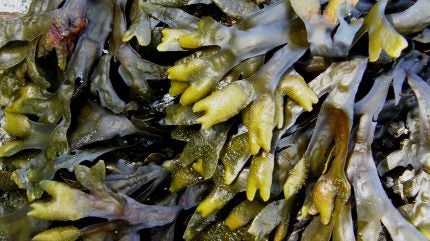
Akua, a New York-based start-up making plant-based foods from kelp seaweed, has pulled the plug on the business.
Co-founder and CEO Courtney Boyd Meyers said in a post on her LinkedIn profile page that “our board reached the very difficult decision to wind up company operations”.

Discover B2B Marketing That Performs
Combine business intelligence and editorial excellence to reach engaged professionals across 36 leading media platforms.
The former journalist and environmentalist added in another post: “If you work in CPG right now, you are well aware of the struggles that early-stage companies are experiencing.
“During our seven incredible years building Akua, we raised money through four different crowdfunding campaigns and over 75 private investors – many of whom are my friends and fellow founders.”
One of those investors was California-based Vibrant Ventures, which led a $3.2m seed round in 2021, taking Akua’s total funding at the time to $5.4m.
Akua launched its first product in 2019 with kelp jerky, followed by kelp burgers in 2021 and kelp-based crab cakes in 2022. The company served independent US retail stores and select restaurants.

US Tariffs are shifting - will you react or anticipate?
Don’t let policy changes catch you off guard. Stay proactive with real-time data and expert analysis.
By GlobalData“We started as a D2C brand, we learned how to scale our kelp burgers into over 1,000 retail stores and with 100+ foodservice customers across the US,” Meyers said.
“We faced many challenges over the years – healthy food is expensive to make and our margins were slim. We got copied by our supply chain partner. The investors ran into our space and they ran out.
“Kelp never took off like we thought it would. And as the economy took a turn for the worse, we battled uphill against the general decline of the plant-based movement.”
A number of other companies in the plant-based protein category have failed over the past 12 months or so. Tattooed Chef in the US is one such case, while in neighbouring Canada The Very Good Food Co. shut its doors last year.
Over in Europe, other examples include The Meatless Farm Co., Plant & Bean and LoveSeitan.
Meanwhile, amid a downturn in demand for protein alternatives, the Quorn meat-free brand owned by Monde Nissin has also been facing headwinds on volumes due to continuing “softness” in the category.
Similarly, Beyond Meat, a more established player in meat-free over in California, is also struggling to shore up volumes and to turn a profit.





